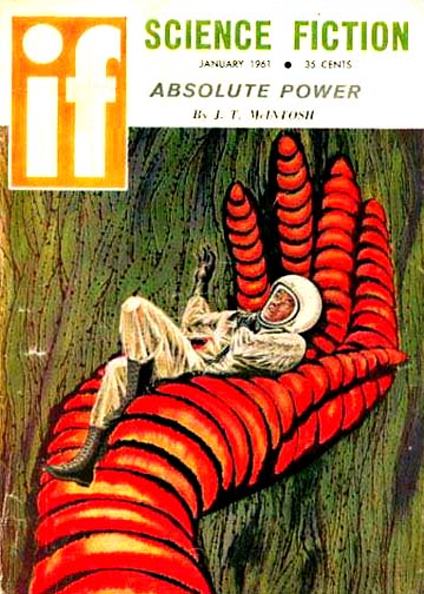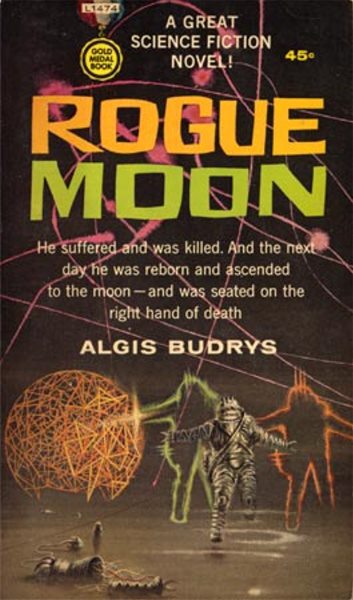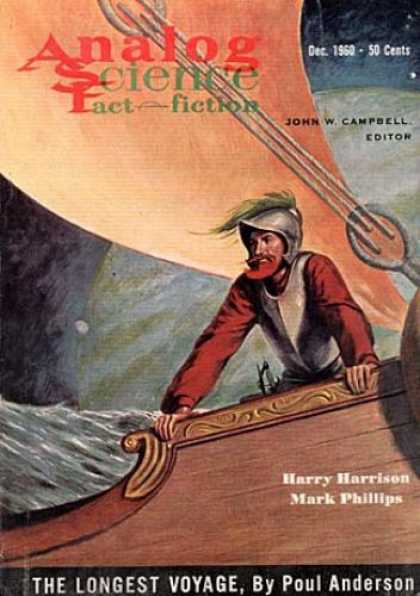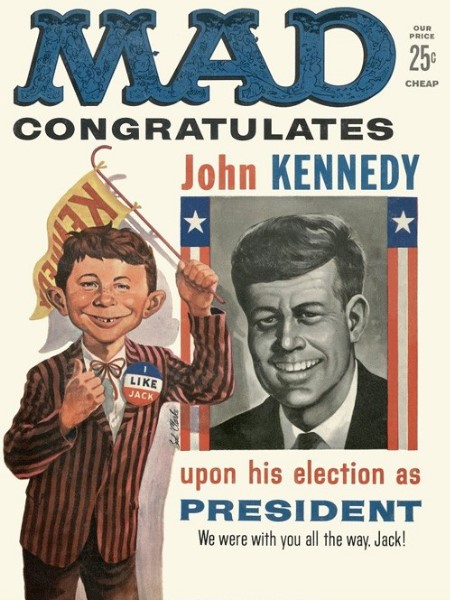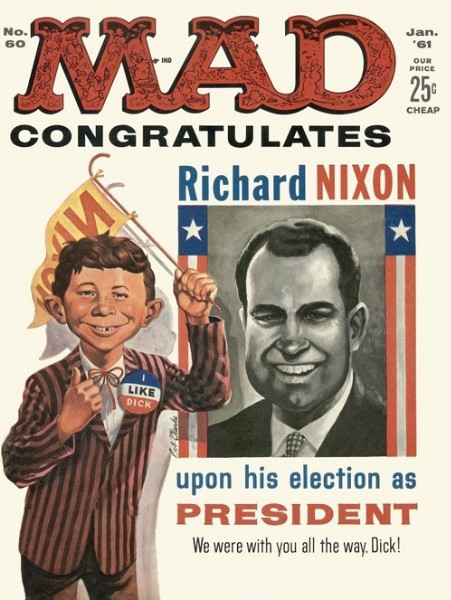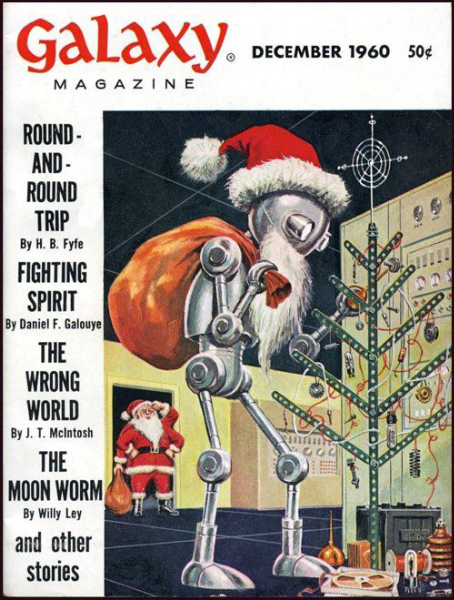There's a big difference between weather and climate. Weather is immediate; climate is gradual. 50 years from now, when the Earth's average temperature has climbed a half a degree or more, thanks to the warming effects of human-caused pollution, people will still point to a cold day in January as proof that nothing has changed.
That's because, just as for the proverbial frog in the slowly boiling pot of water, gradual change is difficult to perceive. Only by assiduous collection of data, and by the subsequent analysis of that data, can we detect long-term trends.

Thus, it is too early to tell whether or not Analog is ever going to pull itself out of its literary doldrums. I had such high hopes after December's issue; January's has dashed them.
It doesn't help that Randall Garrett is still one of Campbell's favorite writers. I'm not sure if Garrett's stories are lousy because Campbell tells Garrett what he should write, or if they're lousy because Garrett writes what he knows Campbell will take. Or maybe Garrett and Campbell independently share awful taste. In any event, the long long lead novella, The Highest Treason, is a one-star drek-fest if ever there was one.
In brief: In the far future, humanity has been reduced to mediocrity after the triumph of bleeding-heart liberal, Commie-pinko sentiments. Job seniority is determined solely by time in service. Decisions are made by group-think. Innovation is scorned as antisocial. There being no classes, there is no motivation to excel.
This strawman of a culture is threatened by a Sparta-esque race of bald humans with pointy ears..I mean, complete aliens. Earth's defeat is only a matter of time. One brilliant man dares to reverse the trend by defecting to the enemy with a cunning plan. He becomes the conquering race's greatest general, winning battle after battle, becoming the most vile traitor to humanity. Then he orders the utter decimation of a populous Terran colony.
This goads the Terrans into activity. It would not have stirred us to action to have our colonies reduced and their people enslaved. No. Only a canny traitor could motivate our rennaissance. Humans quickly develop superweapons that tilt the advantage Earth's way. The war is over in no time, and the era of stifling complacency is over. Hurrah.
The moral: No alien will ever threaten mankind unless we let them. And if we let them, only a human can horrify us out of out lethargy—because humans are better than aliens in every way, even being worse.
Dumb story, dumb premise. It's also poorly written and overpadded. True to Garrett form, only passing mention is made of the existence of women. Three times to be exact–they are offered as a prize to the traitor, hanged from lampposts by the traitor, and disparaged as fickle philanderers by the traitor. All excused by the context of course.
Bleah.
The issue only improves from there; how could it not? Tom Purdom has a weird blood and guts piece called The Green Beret, about a young Black American who joins the UN peacekeeping forces to enforce anti nuclear proliferation rules. I'm not sure what the point is, but I give Purdom points for giving us an atypical protagonist. I don't understand why the UN forces wear green berets, though—they have been wearing blue ones since the Suez Crisis four years ago. Two stars.
Onward and upward. Walter Bupp (John Berryman) gives us Card Trick a sequel of sorts to Vigorish. In the universe portrayed, psi powers exist, and gambling parlors take great pains to ensure they are not used to sway odds. In this story, a fellow is accused of possessing and abusing psionic abilities to win at cards; then he is strong-armed into joining a union of psionic gamblers. He's certain he is a "Normal," however. Is it a frame-up? Or does he have a new kind of power? Three stars.
G. Harry Stine provides the non-fiction article for the month, Time for Tom Swift. It starts off well enough, contending that our current methods for getting into space will never result in a sustainable off-planet presence. They fail the "grandma test," he says. No little old lady can withstand the rigors of rocket take-off..much less afford the ticket! But then he goes on to describe some cockamaimee futuristic designs that are clearly in the same camp as the Dean Drive and electrostatic boosters. Two stars.
That leaves "Leonard Lockhard's" interesting legal study, The Lagging Profession, likely inspired by actual events: In the story, Arthur C. Clarke (the real guy) retains a law firm to investigate the possibility of patenting his idea for geosynchronous (24-hour orbit) communications satellites. It turns out the idea can't be patented because it was described in an article 15 years ago. Moreover, it couldn't even have been patented at the time because the rockets and miniaturized components required for the concept did not exist. We are left with the conclusion that high concepts related to space travel are unpatentable under the laws in their current state.
This may well be true. On the other hand, patents are not the only motivation for invention. Space travel is such an expensive proposition that the sheer cost will provide the protection from competition normally provided by patents. I suspect Clarke's synchronous satellites will be with us well before the decade is out, if our current pace of space development is any indication—you can bet they'll all have Ma Bell's name on them, too. Four stars.
Part Three of "Mark Phillips'" Occasion for Disaster makes up the rest of the issue. I'll hold comment until next month. Giving the serial a three-star placeholder, the January 1961 issue of Analog garners a disappointing 2.5 star rating.
Weather or climate? Only time will tell.

